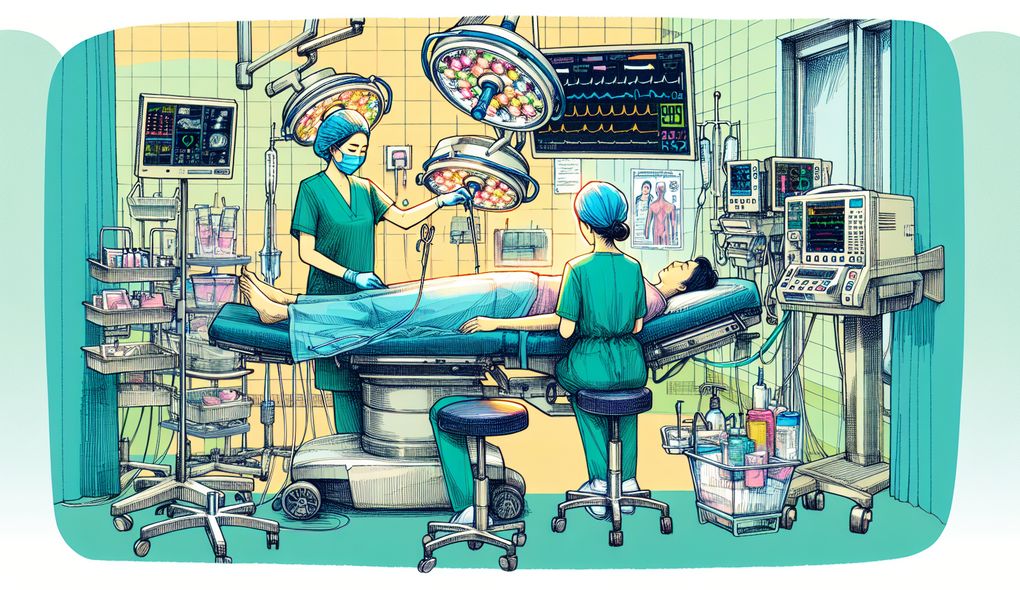What steps do you take to stay organized and manage patient documentation?
JUNIOR LEVEL

Sample answer to the question:
To stay organized and manage patient documentation, I use a systematic approach. First, I prioritize my tasks and create a to-do list for the day. This helps me stay focused and ensures that I don't miss any important documentation. I also utilize electronic healthcare records (EHR) to input patient information and update it regularly. Additionally, I have developed a filing system where I categorize documents based on the type of patient and the specific care provided. This allows me to quickly retrieve and reference patient documentation when needed. Lastly, I always double-check my work to ensure accuracy and completeness.
Here is a more solid answer:
To effectively stay organized and manage patient documentation, I have developed a comprehensive approach. I begin by prioritizing my tasks based on patient needs and urgency. This allows me to allocate time accordingly and ensure that critical documentation is completed promptly. I utilize electronic healthcare records (EHR) to input and update patient information accurately and efficiently. To maintain a high level of accuracy in documentation, I carefully review each entry, cross-checking against patient records and verifying any discrepancies. In addition, I have implemented a color-coding system to categorize different types of documents, making it easier to locate specific information when needed. To handle the fast-paced environment, I have honed my multitasking skills by efficiently managing multiple patient files simultaneously while maintaining attention to detail and accuracy. This involves coordinating with the healthcare team, prioritizing tasks, and utilizing time management techniques. Overall, my organized approach, attention to detail, and ability to multitask effectively enable me to manage patient documentation with precision and efficiency.
Why is this a more solid answer?
The solid answer expands upon the basic answer by providing more specific details. The candidate highlights their approach of prioritizing tasks based on patient needs, utilizing EHR, reviewing documentation for accuracy, implementing a color-coding system, and multitasking effectively. However, it can be further improved by providing examples of time management techniques and emphasizing the candidate's ability to work in a fast-paced environment.
An example of a exceptional answer:
I believe that being organized and managing patient documentation effectively is crucial for providing quality care. To achieve this, I implement a holistic approach. Firstly, I prioritize my tasks by evaluating patient acuity and urgency. This enables me to allocate time efficiently and address critical documentation promptly. In keeping with my detail-oriented nature, I thoroughly review each entry in the electronic healthcare records (EHR) to ensure accuracy and completeness. To enhance efficiency, I proactively collaborate with the healthcare team to obtain necessary information and resolve any discrepancies. Additionally, I employ time management techniques such as setting realistic goals, utilizing efficient documentation templates, and optimizing technology tools within the EHR system. These strategies enable me to manage multiple patient files simultaneously while maintaining meticulous attention to detail. Furthermore, I actively engage in continuous learning by staying updated on advances in EHR systems and attending workshops on time management and organizational skills. By implementing this comprehensive approach, I not only ensure streamlined patient documentation but also contribute to improved patient outcomes and satisfaction.
Why is this an exceptional answer?
The exceptional answer offers a more comprehensive and detailed response. It expands upon the solid answer by emphasizing the candidate's holistic approach of prioritizing tasks based on patient acuity, reviewing entries thoroughly, collaborating with the healthcare team, utilizing time management techniques, and actively seeking continuous learning. The answer also highlights the candidate's commitment to improving patient outcomes and satisfaction through effective documentation management. The candidate could further enhance the answer by providing specific examples of time management techniques and continuous learning activities.
How to prepare for this question:
- Familiarize yourself with electronic healthcare records (EHR) systems commonly used in the healthcare industry. Explore the features and functions they offer, such as documentation templates and time-saving tools.
- Review your prior experiences with managing patient documentation. Identify instances where you demonstrated attention to detail, prioritization skills, and ability to multitask in a fast-paced environment. Prepare specific examples to showcase in your answer.
- Research time management techniques suited for healthcare professionals. Consider strategies like setting SMART goals, using prioritization frameworks (e.g., ABCD technique), and utilizing effective communication to streamline documentation tasks.
- Stay updated on industry advancements and best practices in patient documentation management. Attend workshops, webinars, or conferences that focus on EHR utilization, time management skills, and organizational strategies in healthcare settings.
What are interviewers evaluating with this question?
- Detail-oriented with a high level of accuracy in documentation
- Basic computer literacy and experience with electronic healthcare records
- Time management skills and ability to multitask in a fast-paced environment

